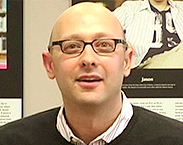 By Adam Strom, Director of Research and Development, Facing History and Ourselves
By Adam Strom, Director of Research and Development, Facing History and Ourselves
Full article originally published on Facing History and Ourselves
The Mosque Controversy as a Teachable Moment
The controversy over Park51—the Lower Manhattan Islamic culture center and mosque—and the recent stabbing of a Muslim cab driver in New York City are reminders that for all of our strengths as a nation, we are not good at talking about religion.
Discussion about Park51 has turned too quickly to heated debate, with voices at the fringe on both sides distorting the perspectives, values, and in some cases the identity of each other. These are nuanced and difficult issues, and regardless of where you stand, we should use this as a teachable moment and an opportunity for civic exchange.
What has become clear is that we don’t know very much about each other’s religious or cultural traditions. In fact, we often can’t distinguish between religion and culture, and we mistake one faith for another.
European Islamic scholar Riem Spielhaus follows mosque-building controversies across Europe. She believes these moments create an opportunity for communication across communities and make visible tensions that are often unspoken. They unveil the changes we are undergoing as a society. Facing History and Ourselves believes these are educational opportunities, and in a very real way, these civic dilemmas are how societies negotiate differences. Education must prepare young people to wrestle with these decisions.
Each day newspapers report on religious and ethnic tensions within and across borders, whether it is about the placement of a mosque or a church, or the religious and cultural practices and dress of new arrivals. As newcomers reshape the landscapes of public spaces, they also change our perceptions of home, self, and community.
The most important of those public places is schools. NYU sociologist Marcelo Suarez-Orozco notes that, “Education is at the center of this uncharted content.” How can schools equip young people with the skills they need to participate in an informed discussion about religion and identity with people whose backgrounds and politics are different than their own?
Working with educators around the world for three decades, we at Facing History and Ourselves have learned that teachers need high-quality resources and professional development to integrate historical knowledge and civic skills into the lessons they impart to their students. These are the lessons of a well-rounded education.
In a story from one of our recent publications, Eboo Patel, an American Muslim and the founder of the Interfaith Youth Core, laments his failure as a high school student to respond vigorously to incidents of antisemitism directed against one of his friends. Simply put, he was unprepared.
That moment passed, and hopefully this one will too, but in an increasingly globalized world, you can be sure it won’t be long before we are in the midst of another conflict in which religion plays a key role. We may teach young people that “sticks and stones may break my bones, but words can never hurt me,” but they, and all of us, know a different reality. Words of hate—whatever their source—degrade, dehumanize, and eventually destroy. If we are to win the struggle for the world’s conscience and future, our classrooms must promote understanding, caring, and a shared sense of belonging.
Author:
Adam Strom is Director of Research and Development at Facing History and Ourselves.
Facing History and Ourselves delivers classroom strategies, resources and lessons that inspire young people to take responsibility for their world. Facing History’s effectiveness in supporting teachers and promoting students’ academic development and civic learning has been demonstrated in more than 90 studies by independent researchers and Facing History evaluators. Learn more at www.facinghistory.org.
Comments
Please Don't Burn The Koran
The Dove World Outreach Center Church in Gainesville, Florida is planning an event to burn the Koran on September 11, 2010.
To stand up against this extremism, we are gathering signatures from people with the goal of providing a powerful voice for the community. City and community leaders will deliver the petition to Pastor Terry Jones prior to his 9/11 event. Regardless of what he ultimately does, it is our obligation as a community to be on record that we stood up together and requested that he abandon his plans to burn the Koran. Please sign the petition online and help us to distribute it to others everywhere:
http://www.PleaseDontBurnTheKoran.com